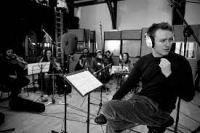Latest Sheet Music
Nina Simone
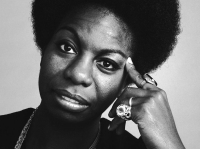
Nina Simone was an American singer, songwriter, pianist, arranger, and civil rights activist who worked in a broad range of musical styles including classical, jazz, blues, folk, R&B, gospel, and pop.
Kid Rock
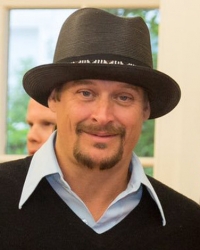
Robert James Ritchie Sr. (born January 17, 1971), better known by his stage names Kid Rock and Bobby Shazam, is an American singer-songwriter, rapper, musician, and record producer. In a career spanning 30 years, Rock's musical style alternates between rock, hip hop, and country. A multi-instrumentalist, he has overseen his own production on nine of his eleven studio albums.
Zbigniew Preisner

Zbigniew Preisner (Polish: ; born 20 May 1955 as Zbigniew Antoni Kowalski) is a Polish film score composer, best known for his work with film director Krzysztof KieślowskiZbigniew Preisner was born in Bielsko-Biała, and studied history and philosophy in Kraków. Never having received formal music lessons, he taught himself music by listening and transcribing parts from records. His compositional style represents a distinctively spare form of tonal neo-Romanticism. Paganini and Jean Sibelius are acknowledged influences.
Claude-Michel Schonberg
Claude-Michel Schönberg is a French record producer, actor, singer, songwriter, and musical theatre composer, best known for his collaborations with lyricist Alain Boublil. Major works include La Révolution Française, Les Misérables, Miss Saigon, Martin Guerre, The Pirate Queen, and Marguerite.
Ramses Shaffy

Ramses Shaffy was a Dutch-French singer and actor who became popular during the 1960s. His most famous songs include "Zing, vecht, huil, bid, lach, werk en bewonder", "We zullen doorgaan", "Pastorale", "Sammy" and "Laat me". He frequently collaborated with Dutch singer Liesbeth List.
Music theory

Music theory is the study of the practices and possibilities of music. The Oxford Companion to Music describes three interrelated uses of the term "music theory"
Giuseppe Ottavio Pitoni

Giuseppe Ottavio Pitoni (Rieti, 18 March 1657 – Rome, 1 February 1743) was an Italian organist and composer. He became one of the leading musicians in Rome during the late Baroque era, the first half of the 18th century.Taken to Rome as an infant, he began vocal study with Pompeo Natali at the age of five and sang in the choir of San Giovanni dei Fiorentini from age eight. At Santi Apostoli he sang and studied counterpoint with Francesco Foggia, where his early compositions were performed. By age sixteen he was maestro di cappella at Santa Maria Maggiore, Monterotondo, a historic church near Rome. In 1673 as maestro for the cathedral at Assisi he began intensive study of the works of Palestrina, and in 1676 moved to the cathedral at Rieti.
Astor Piazzolla

Ástor Pantaleón Piazzolla (March 11, 1921 – July 4, 1992) was an Argentine tango composer and bandoneón player. His oeuvre revolutionized the traditional tango into a new style termed nuevo tango, incorporating elements from jazz and classical music. An excellent bandoneonist, he regularly performed his own compositions with different ensembles.
Piazzolla's nuevo tango was distinct from the traditional tango in its incorporation of elements of jazz, its use of extended harmonies and dissonance, its use of counterpoint, and its ventures into extended compositional forms. As Argentine psychoanalyst Carlos Kuri has pointed out, Piazzolla's fusion of tango with this wide range of other recognizable Western musical elements was so successful that it produced a new individual style transcending these influences. It is precisely this success, and individuality, that makes it hard to pin down where particular influences reside in his compositions, but some aspects are clear. The use of the passacaglia technique of a circulating bass line and harmonic sequence, invented and much used in 17th and 18th century baroque music but also central to the idea of jazz "changes", predominates in most of Piazzolla's mature compositions. Another clear reference to the baroque is the often complex and virtuosic counterpoint that sometimes follows strict fugal behavior but more often simply allows each performer in the group to assert his voice. A further technique that emphasises this sense of democracy and freedom among the musicians is improvisation that is borrowed from jazz in concept, but in practice involves a different vocabulary of scales and rhythms that stay within the parameters of the established tango sound-world. Pablo Ziegler has been particularly responsible for developing this aspect of the style both within Piazzolla's groups and since the composer's death.
Piazzolla's nuevo tango was distinct from the traditional tango in its incorporation of elements of jazz, its use of extended harmonies and dissonance, its use of counterpoint, and its ventures into extended compositional forms. As Argentine psychoanalyst Carlos Kuri has pointed out, Piazzolla's fusion of tango with this wide range of other recognizable Western musical elements was so successful that it produced a new individual style transcending these influences. It is precisely this success, and individuality, that makes it hard to pin down where particular influences reside in his compositions, but some aspects are clear. The use of the passacaglia technique of a circulating bass line and harmonic sequence, invented and much used in 17th and 18th century baroque music but also central to the idea of jazz "changes", predominates in most of Piazzolla's mature compositions. Another clear reference to the baroque is the often complex and virtuosic counterpoint that sometimes follows strict fugal behavior but more often simply allows each performer in the group to assert his voice. A further technique that emphasises this sense of democracy and freedom among the musicians is improvisation that is borrowed from jazz in concept, but in practice involves a different vocabulary of scales and rhythms that stay within the parameters of the established tango sound-world. Pablo Ziegler has been particularly responsible for developing this aspect of the style both within Piazzolla's groups and since the composer's death.
Bach

Johann Sebastian Bach (31 March 1685 – 28 July 1750) was a German composer and organist whose sacred and secular works for choir, orchestra, and solo instruments drew together the strands of the Baroque period and brought it to its ultimate maturity. Although he introduced no new forms, he enriched the prevailing German style with a robust contrapuntal technique, an unrivalled control of harmonic and motivic organisation in composition for diverse musical forces, and the adaptation of rhythms and textures from abroad, particularly Italy and France.
Revered for their intellectual depth and technical and artistic beauty, Bach's works include the Brandenburg concertos; the Goldberg Variations; the English Suites, French Suites, Partitas, and Well-Tempered Clavier; the Mass in B Minor; the St. Matthew Passion; the St. John Passion; The Musical Offering; The Art of Fugue; the Sonatas and Partitas for violin solo; the Cello Suites; more than 200 surviving cantatas; and a similar number of organ works, including the celebrated Toccata and Fugue in D Minor.
While Bach's fame as an organist was great during his lifetime, he was not particularly well-known as a composer. His adherence to Baroque forms and contrapuntal style was considered "old-fashioned" by his contemporaries, especially late in his career when the musical fashion tended towards Rococo and later Classical styles. A revival of interest and performances of his music began early in the 19th century, and he is now widely considered to be one of the greatest composers in the Western tradition.
Revered for their intellectual depth and technical and artistic beauty, Bach's works include the Brandenburg concertos; the Goldberg Variations; the English Suites, French Suites, Partitas, and Well-Tempered Clavier; the Mass in B Minor; the St. Matthew Passion; the St. John Passion; The Musical Offering; The Art of Fugue; the Sonatas and Partitas for violin solo; the Cello Suites; more than 200 surviving cantatas; and a similar number of organ works, including the celebrated Toccata and Fugue in D Minor.
While Bach's fame as an organist was great during his lifetime, he was not particularly well-known as a composer. His adherence to Baroque forms and contrapuntal style was considered "old-fashioned" by his contemporaries, especially late in his career when the musical fashion tended towards Rococo and later Classical styles. A revival of interest and performances of his music began early in the 19th century, and he is now widely considered to be one of the greatest composers in the Western tradition.
Sade

Helen Folasade Adu CBE, known professionally as Sade Adu or simply Sade, is a British Nigerian singer, songwriter, and actress, known as the lead singer of her eponymous band.
Dolly Parton
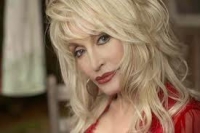
Dolly Rebecca Parton (born January 19, 1946) is an American singer-songwriter, author, multi-instrumentalist, actress and philanthropist, best known for her work in country music. She starred in the movies 9 to 5, The Best Little Whorehouse in Texas, Steel Magnolias, Straight Talk, Unlikely Angel and Joyful Noise. She is one of the most successful female country artists of all time; with an estimated 100 million in album sales, Dolly Parton is also one of the best selling artists of all time. She is known as "The Queen of Country Music".
Laura Pausini
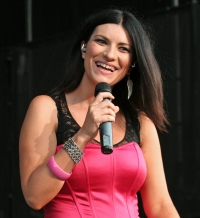
Laura Pausini (born May 16, 1974) is an Italian pop singer, popular in several European, Latin American, and Middle Eastern countries, famed for her powerful voice, her romantic adult contemporary ballads and love songs. She is fluent in several languages and has recorded songs in Italian, Spanish and English. She has also recorded some songs in Portuguese, a language of which she has a good (but not excellent) knowledge, and French, which she does not speak at all. At the 2006 Grammy Awards, Pausini won Best Latin Pop Album for Escucha.
Henry Carey
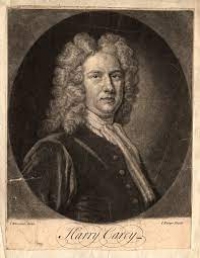
Henry Carey was an English poet, dramatist and songwriter. He is remembered as an anti-Walpolean satirist and also as a patriot. Several of his melodies continue to be sung today, and he was widely praised in the generation after his death.
John Williams

John Towner Williams (born February 8, 1932) is an American composer, conductor, and pianist. In a career that spans six decades, Williams has composed many of the most famous film scores in Hollywood history, including Star Wars, Superman, Home Alone, the first three Harry Potter movies and all but two of Steven Spielberg's feature films including the Indiana Jones series, Schindler's List, E.T. the Extra-Terrestrial, Jurassic Park and Jaws. He also composed the soundtrack for the hit 1960s television series Lost in Space as well as the fanfare of the DreamWorks Pictures' logo.
Williams has composed theme music for four Olympic Games, the NBC Nightly News, the rededication of the Statue of Liberty, and numerous television series and concert pieces. He served as the principal conductor of the Boston Pops Orchestra from 1980 to 1993, and is now the orchestra's laureate conductor.
Williams is a five-time winner of the Academy Award. He has also won four Golden Globe Awards, seven BAFTA Awards and 21 Grammy Awards. With 45 Academy Award nominations, Williams is, together with composer Alfred Newman, the second most nominated person after Walt Disney. He was inducted into the Hollywood Bowl Hall of Fame in 2000, and was a recipient of the Kennedy Center Honors in 2004.
Williams has composed theme music for four Olympic Games, the NBC Nightly News, the rededication of the Statue of Liberty, and numerous television series and concert pieces. He served as the principal conductor of the Boston Pops Orchestra from 1980 to 1993, and is now the orchestra's laureate conductor.
Williams is a five-time winner of the Academy Award. He has also won four Golden Globe Awards, seven BAFTA Awards and 21 Grammy Awards. With 45 Academy Award nominations, Williams is, together with composer Alfred Newman, the second most nominated person after Walt Disney. He was inducted into the Hollywood Bowl Hall of Fame in 2000, and was a recipient of the Kennedy Center Honors in 2004.
Traditional

Daft Punk
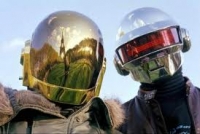
Daft Punk is an electronic music duo consisting of French musicians Guy-Manuel de Homem-Christo (born February 8, 1974) and Thomas Bangalter (born January 3, 1975). Daft Punk reached significant popularity in the late 1990s house movement in France and met with continued success in the years following, combining elements of house with synthpop. The duo is also credited with producing songs that are considered essential in the French house scene. They were managed from 1996 to 2008 by Pedro Winter (Busy P), the head of Ed Banger Records. Early in the group's career, the band members were strongly influenced by groups such as The Beach Boys and The Rolling Stones. Bangalter and de Homem-Christo were originally in a band called Darlin', which disbanded after a short period of time, leaving the two to experiment musically on their own.
The duo became Daft Punk, and released their critically acclaimed debut album Homework in 1997. The 2001 release Discovery was even more successful, driven by the club singles "One More Time", "Digital Love" and "Harder, Better, Faster, Stronger". In March 2005, the duo released the album Human After All to mixed reviews. However, the singles "Robot Rock" and "Technologic" achieved success in the United Kingdom. Daft Punk toured throughout 2006 and 2007 and released the live album Alive 2007, which won a Grammy award for Best Electronic/Dance Album. The duo composed the score of the film Tron: Legacy and in 2010 released the soundtrack album of the film. Daft Punk are noted for their elaborate live shows, in which visual elements and effects are incorporated with the music. The group is also known for its emphasis on visual and story components associated with their musical productions, as well as for wearing disguises, most notably, ornate robot costumes in public and while performing.
The duo became Daft Punk, and released their critically acclaimed debut album Homework in 1997. The 2001 release Discovery was even more successful, driven by the club singles "One More Time", "Digital Love" and "Harder, Better, Faster, Stronger". In March 2005, the duo released the album Human After All to mixed reviews. However, the singles "Robot Rock" and "Technologic" achieved success in the United Kingdom. Daft Punk toured throughout 2006 and 2007 and released the live album Alive 2007, which won a Grammy award for Best Electronic/Dance Album. The duo composed the score of the film Tron: Legacy and in 2010 released the soundtrack album of the film. Daft Punk are noted for their elaborate live shows, in which visual elements and effects are incorporated with the music. The group is also known for its emphasis on visual and story components associated with their musical productions, as well as for wearing disguises, most notably, ornate robot costumes in public and while performing.
Brahms

Johannes Brahms (May 7, 1833 â April 3, 1897) was a German composer of the Romantic period. He was born in Hamburg and in his later years he settled in Vienna, Austria.
Brahms maintained a Classical sense of form and order in his works â in contrast to the opulence of the music of many of his contemporaries. Thus many admirers (though not necessarily Brahms himself) saw him as the champion of traditional forms and "pure music," as opposed to the New German embrace of program music.
Brahms venerated Beethoven: in the composer's home, a marble bust of Beethoven looked down on the spot where he composed, and some passages in his works are reminiscent of Beethoven's style. The main theme of the finale of Brahms's First Symphony is reminiscent of the main theme of the finale of Beethoven's Ninth, and when this resemblance was pointed out to Brahms he replied that any ass â jeder Esel â could see that.
Ein deutsches Requiem was partially inspired by his mother's death in 1865, but also incorporates material from a Symphony he started in 1854, but abandoned following Schumann's suicide attempt. He once wrote that the Requiem "belonged to Schumann". The first movement of this abandoned Symphony was re-worked as the first movement of the First Piano Concerto.
Brahms also loved the Classical composers Mozart and Haydn. He collected first editions and autographs of their works, and edited performing editions. He also studied the music of pre-classical composers, including Giovanni Gabrieli, Johann Adolph Hasse, Heinrich Schütz and especially Johann Sebastian Bach. His friends included leading musicologists, and with Friedrich Chrysander he edited an edition of the works of François Couperin. He looked to older music for inspiration in the arts of strict counterpoint; the themes of some of his works are modelled on Baroque sources, such as Bach's The Art of Fugue in the fugal finale of Cello Sonata No. 1, or the same composer's Cantata No. 150 in the passacaglia theme of the Fourth Symphony's finale.
Brahms maintained a Classical sense of form and order in his works â in contrast to the opulence of the music of many of his contemporaries. Thus many admirers (though not necessarily Brahms himself) saw him as the champion of traditional forms and "pure music," as opposed to the New German embrace of program music.
Brahms venerated Beethoven: in the composer's home, a marble bust of Beethoven looked down on the spot where he composed, and some passages in his works are reminiscent of Beethoven's style. The main theme of the finale of Brahms's First Symphony is reminiscent of the main theme of the finale of Beethoven's Ninth, and when this resemblance was pointed out to Brahms he replied that any ass â jeder Esel â could see that.
Ein deutsches Requiem was partially inspired by his mother's death in 1865, but also incorporates material from a Symphony he started in 1854, but abandoned following Schumann's suicide attempt. He once wrote that the Requiem "belonged to Schumann". The first movement of this abandoned Symphony was re-worked as the first movement of the First Piano Concerto.
Brahms also loved the Classical composers Mozart and Haydn. He collected first editions and autographs of their works, and edited performing editions. He also studied the music of pre-classical composers, including Giovanni Gabrieli, Johann Adolph Hasse, Heinrich Schütz and especially Johann Sebastian Bach. His friends included leading musicologists, and with Friedrich Chrysander he edited an edition of the works of François Couperin. He looked to older music for inspiration in the arts of strict counterpoint; the themes of some of his works are modelled on Baroque sources, such as Bach's The Art of Fugue in the fugal finale of Cello Sonata No. 1, or the same composer's Cantata No. 150 in the passacaglia theme of the Fourth Symphony's finale.
Jimi Hendrix
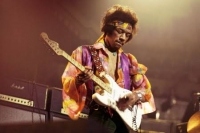
Johnny Allen "Jimi" Hendrix, American guitarist, guitar virtuoso, singer, songwriter and cultural icon. Hendrix is one of the most influential musicians in rock history. Hendrix, who first gained fame in the UK, became world famous after the Monterey Pop Festival in 1967
Panic at the Disco

Panic at the Disco (formerly known as Panic! at the Disco) is a rock band that originated in Las Vegas, Nevada, USA. Their sound incorporates elements of pop punk, big beat, electronica, techno, and rock, along with many other genres like psychedelic, baroque pop, folk and jazz. Their 2005 debut album, A Fever You Can't Sweat Out, reached #13 on the US Billboard 200, and has sold over 2.2 million copies since its September 2005 release. The band's second album, Pretty. Odd., was released on March 25, 2008 and debuted at #2 in the US.
Dave Mason

David Thomas Mason (born 10 May 1946) is an English singer-songwriter and guitarist from Worcester, who first found fame with the rock band Traffic. Over the course of his career, Mason has played and recorded with many notable pop and rock musicians, including Paul McCartney, George Harrison, the Rolling Stones, Jimi Hendrix, Eric Clapton, Michael Jackson, David Crosby, Graham Nash, Steve Winwood, Fleetwood Mac, Delaney & Bonnie, Leon Russell and Cass Elliot. One of Mason's best known songs is "Feelin' Alright", recorded by Traffic in 1968 and later by many other performers, including Joe Cocker, whose version of the song was a hit in 1969. For Traffic, he also wrote "Hole in My Shoe", a psychedelic pop song that became a hit in its own right. "We Just Disagree", Mason's 1977 solo US hit, written by Jim Krueger, has become a staple of US classic hits and adult contemporary radio playlists.
Zoltán Kodály
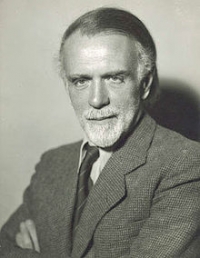
Zoltán Kodály (/ˈkoʊdaɪ/; Hungarian: Kodály Zoltán, pronounced ; 16 December 1882 – 6 March 1967) was a Hungarian composer, ethnomusicologist, pedagogue, linguist, and philosopher. He is well known internationally as the creator of the Kodály method of music education.
Aline Barros

Aline Barros Kistenmacker dos Santos, better known as Aline Barros is a singer, songwriter, presenter and manager in Brazil. Some of her albums have been certified multiple Diamond by the Associação Brasileira dos Produtores de Discos.
Peter, Paul and Mary
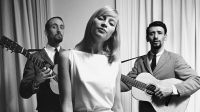
Peter, Paul and Mary were an American folk group formed in New York City in 1961, during the American folk music revival phenomenon. The trio was composed of tenor Peter Yarrow, baritone Noel Paul Stookey and contralto Mary Travers.
Schubert

Franz Peter Schubert (January 31, 1797 – November 19, 1828) was an Austrian composer. He wrote some 600 lieder, nine symphonies (including the famous "Unfinished Symphony"), liturgical music, operas, and a large body of chamber and solo piano music. He is particularly noted for his original melodic and harmonic writing.
While Schubert had a close circle of friends and associates who admired his work (including his teacher Antonio Salieri, and the prominent singer Johann Michael Vogl), wider appreciation of his music during his lifetime was limited at best. He was never able to secure adequate permanent employment, and for most of his career he relied on the support of friends and family. Interest in Schubert's work increased dramatically in the decades following his death and he is now widely considered to be one of the greatest composers in the Western tradition.
While he was clearly influenced by the Classical sonata forms of Beethoven and Mozart (his early works, among them notably the 5th Symphony, are particularly Mozartean), his formal structures and his developments tend to give the impression more of melodic development than of harmonic drama. This combination of Classical form and long-breathed Romantic melody sometimes lends them a discursive style: his 9th Symphony was described by Robert Schumann as running to "heavenly lengths". His harmonic innovations include movements in which the first section ends in the key of the subdominant rather than the dominant (as in the last movement of the Trout Quintet). Schubert's practice here was a forerunner of the common Romantic technique of relaxing, rather than raising, tension in the middle of a movement, with final resolution postponed to the very end.
While Schubert had a close circle of friends and associates who admired his work (including his teacher Antonio Salieri, and the prominent singer Johann Michael Vogl), wider appreciation of his music during his lifetime was limited at best. He was never able to secure adequate permanent employment, and for most of his career he relied on the support of friends and family. Interest in Schubert's work increased dramatically in the decades following his death and he is now widely considered to be one of the greatest composers in the Western tradition.
While he was clearly influenced by the Classical sonata forms of Beethoven and Mozart (his early works, among them notably the 5th Symphony, are particularly Mozartean), his formal structures and his developments tend to give the impression more of melodic development than of harmonic drama. This combination of Classical form and long-breathed Romantic melody sometimes lends them a discursive style: his 9th Symphony was described by Robert Schumann as running to "heavenly lengths". His harmonic innovations include movements in which the first section ends in the key of the subdominant rather than the dominant (as in the last movement of the Trout Quintet). Schubert's practice here was a forerunner of the common Romantic technique of relaxing, rather than raising, tension in the middle of a movement, with final resolution postponed to the very end.
Gentle Giant

Gentle Giant were a British progressive rock band active between 1970 and 1980. The band was known for the complexity and sophistication of its music and for the varied musical skills of its members. All of the band members, except the first two drummers, were multi-instrumentalists. Although not commercially successful, they did achieve a cult following.
The band's onetime stated aim was to "expand the frontiers of contemporary popular music at the risk of becoming very unpopular," although this stance was to alter significantly with time. While never achieving the commercial heights of progressive rock contemporaries such as Jethro Tull, Genesis, Yes or Emerson, Lake & Palmer, Gentle Giant was considered to be one of the most experimental bands in the genre (as well as one of the most experimental rock bands of the 1970s).
The band's onetime stated aim was to "expand the frontiers of contemporary popular music at the risk of becoming very unpopular," although this stance was to alter significantly with time. While never achieving the commercial heights of progressive rock contemporaries such as Jethro Tull, Genesis, Yes or Emerson, Lake & Palmer, Gentle Giant was considered to be one of the most experimental bands in the genre (as well as one of the most experimental rock bands of the 1970s).
Stephen Schwartz
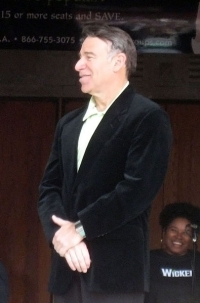
Stephen Lawrence Schwartz (born March 6, 1948) is an American musical theater lyricist and composer. In a career already spanning over four decades, Schwartz has written such hit musicals as Godspell (1971), Pippin (1972) and Wicked (2003). He has also contributed lyrics for a number of successful films, including Pocahontas (1995), The Hunchback of Notre Dame (1996), The Prince of Egypt (1998; music and lyrics) and Enchanted (2007). Schwartz has won the Drama Desk Award for Outstanding Lyrics, three Grammy Awards, and three Academy Awards and has been nominated for six Tony Awards.
Renaud
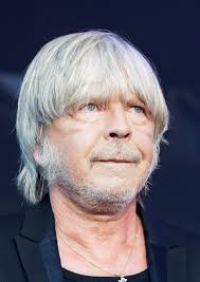
Renaud Pierre Manuel Séchan (French pronunciation: ), known as Renaud (French: (About this soundlisten); born 11 May 1952), is a popular French singer, songwriter and actor. His characteristically 'broken' voice makes for a very distinctive vocal style. Several of his songs are popular classics in France, including the sea tale "Dès que le vent soufflera", the irreverent "Laisse béton", the ballad "Morgane de toi" and the nostalgic "Mistral gagnant". However, with the exception of a recording of "Miss Maggie" in English and a franglais recording of "It is not because you are", his work is almost unknown outside the French-speaking world.
Glee

Glee is a musical comedy-drama television series that airs on Fox in the United States. It focuses on the high school glee club New Directions competing on the show choir competition circuit, while its members deal with relationships, sexuality and social issues. The initial main cast encompassed club director and Spanish teacher Will Schuester (Matthew Morrison), cheerleading coach Sue Sylvester (Jane Lynch), guidance counselor Emma Pillsbury (Jayma Mays), Will's wife Terri (Jessalyn Gilsig), and eight club members played by Dianna Agron, Chris Colfer, Kevin McHale, Lea Michele, Cory Monteith, Amber Riley, Mark Salling and Jenna Ushkowitz. For the second season, formerly recurring cast members Mike O'Malley, Heather Morris and Naya Rivera were promoted to the main cast.
The series was created by Ryan Murphy, Brad Falchuk and Ian Brennan, who first conceived Glee as a film. The pilot episode was broadcast on May 19, 2009, and the first season aired from September 9, 2009 to June 8, 2010. The second season began airing on September 21, 2010, and a third season has been commissioned. Glee features on-screen performance-based musical numbers that are selected by Murphy, who aims to maintain a balance between show tunes and chart hits. Songs covered in the show are released through the iTunes Store during the week of broadcast, and a series of Glee albums have been released by Columbia Records. The music of Glee has been a commercial success, with over thirteen million digital single sales and five million album sales. The series' merchandise also includes DVD and Blu-Ray releases, a young adult book series, an iPad application, and a karaoke game for the Wii.
During its first season, Glee received generally favorable reviews from critics, with Metacritic's weighted average based on the impression of 18 critical reviews of 77 percent. The season was nominated for nineteen Emmy Awards, four Golden Globe Awards, six Satellite Awards and fifty-seven other awards, with wins including the 2010 Golden Globe Award for Best Television Series—Musical or Comedy, and Emmy awards for Lynch, guest-star Neil Patrick Harris and Murphy's direction of the pilot episode. The second season has currently been nominated for five Golden Globes including Best Television Series in a Comedy and as well as nominations for Matthew Morrison, Jane Lynch, Lea Michele and Chris Colfer.
The series was created by Ryan Murphy, Brad Falchuk and Ian Brennan, who first conceived Glee as a film. The pilot episode was broadcast on May 19, 2009, and the first season aired from September 9, 2009 to June 8, 2010. The second season began airing on September 21, 2010, and a third season has been commissioned. Glee features on-screen performance-based musical numbers that are selected by Murphy, who aims to maintain a balance between show tunes and chart hits. Songs covered in the show are released through the iTunes Store during the week of broadcast, and a series of Glee albums have been released by Columbia Records. The music of Glee has been a commercial success, with over thirteen million digital single sales and five million album sales. The series' merchandise also includes DVD and Blu-Ray releases, a young adult book series, an iPad application, and a karaoke game for the Wii.
During its first season, Glee received generally favorable reviews from critics, with Metacritic's weighted average based on the impression of 18 critical reviews of 77 percent. The season was nominated for nineteen Emmy Awards, four Golden Globe Awards, six Satellite Awards and fifty-seven other awards, with wins including the 2010 Golden Globe Award for Best Television Series—Musical or Comedy, and Emmy awards for Lynch, guest-star Neil Patrick Harris and Murphy's direction of the pilot episode. The second season has currently been nominated for five Golden Globes including Best Television Series in a Comedy and as well as nominations for Matthew Morrison, Jane Lynch, Lea Michele and Chris Colfer.
Chick Corea

Armando Anthony "Chick" Corea (born June 12, 1941) is a multiple Grammy Award-winning American jazz pianist, keyboardist, drummer, and composer.
He is known for his work during the 1970s in the genre of jazz fusion. He participated in the birth of the electric fusion movement as a member of Miles Davis' band in the 1960s, and in the 1970s formed Return to Forever.
He continued to pursue other collaborations and explore various musical styles throughout the 1980s and 1990s. He is also known for promoting Scientology.
He is known for his work during the 1970s in the genre of jazz fusion. He participated in the birth of the electric fusion movement as a member of Miles Davis' band in the 1960s, and in the 1970s formed Return to Forever.
He continued to pursue other collaborations and explore various musical styles throughout the 1980s and 1990s. He is also known for promoting Scientology.
Hans Leo Hassler
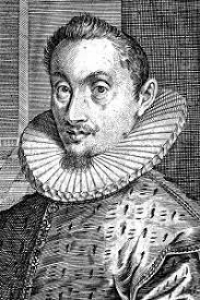
Ger. composer and organist. Org. at Augsburg 1586–1600, Nuremberg 1601–8, Dresden from 1608. Wrote It. canzonette, cantiones sacrae, madrigals, masses, and motets.
Joe Hisaishi

Mamoru Fujisawa (藤澤 守 Fujisawa Mamoru?), known professionally as Joe Hisaishi (久石 譲 Hisaishi Jō?, born December 6, 1950), is a composer and director known for over 100 film scores and solo albums dating back to 1981.
While possessing a stylistically distinct sound, Hisaishi's music has been known to explore and incorporate different genres, including minimalist, experimental electronic, European classical, and Japanese classical. Lesser known are the other musical roles he plays; he is also a typesetter, author, arranger, and head of an orchestra.
He is best known for his work with animator Hayao Miyazaki, having composed scores for many of his films including Nausicaä of the Valley of the Wind (1984), My Neighbor Totoro (1988), Princess Mononoke (1997), Spirited Away (2001), Howl's Moving Castle (2004) and Ponyo (2008). He is also recognized for the soundtracks he has provided for filmmaker 'Beat' Takeshi Kitano, including Dolls (2002), Kikujiro (1999), Hana-bi (1997), Kids Return (1996), Sonatine (1993).
While possessing a stylistically distinct sound, Hisaishi's music has been known to explore and incorporate different genres, including minimalist, experimental electronic, European classical, and Japanese classical. Lesser known are the other musical roles he plays; he is also a typesetter, author, arranger, and head of an orchestra.
He is best known for his work with animator Hayao Miyazaki, having composed scores for many of his films including Nausicaä of the Valley of the Wind (1984), My Neighbor Totoro (1988), Princess Mononoke (1997), Spirited Away (2001), Howl's Moving Castle (2004) and Ponyo (2008). He is also recognized for the soundtracks he has provided for filmmaker 'Beat' Takeshi Kitano, including Dolls (2002), Kikujiro (1999), Hana-bi (1997), Kids Return (1996), Sonatine (1993).
Django Reinhardt
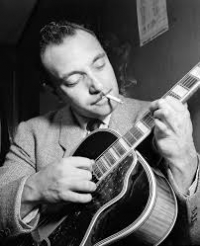
Jean Reinhardt (23 January 1910 – 16 May 1953), known by his stage name Django Reinhardt (French: or ), was a Belgian-born Romani-French jazz guitarist and composer, regarded as one of the greatest musicians of the twentieth century. He was the first jazz talent to emerge from Europe and remains the most significant.:cover
With violinist Stéphane Grappelli, Reinhardt formed the Paris-based Quintette du Hot Club de France in 1934. The group was among the first to play jazz that featured the guitar as a lead instrument. Reinhardt recorded in France with many visiting American musicians, including Coleman Hawkins and Benny Carter, and briefly toured the United States with Duke Ellington's orchestra in 1946. He died suddenly of a stroke at the age of 43.
Reinhardt's most popular compositions have become standards within gypsy jazz, including "Minor Swing", "Daphne", "Belleville", "Djangology", "Swing '42", and "Nuages". Jazz guitarist Frank Vignola claims that nearly every major popular-music guitarist in the world has been influenced by Reinhardt. Over the last few decades, annual Django festivals have been held throughout Europe and the U.S., and a biography has been written about his life. In February 2017, the Berlin International Film Festival held the world premiere of the French film, Django
With violinist Stéphane Grappelli, Reinhardt formed the Paris-based Quintette du Hot Club de France in 1934. The group was among the first to play jazz that featured the guitar as a lead instrument. Reinhardt recorded in France with many visiting American musicians, including Coleman Hawkins and Benny Carter, and briefly toured the United States with Duke Ellington's orchestra in 1946. He died suddenly of a stroke at the age of 43.
Reinhardt's most popular compositions have become standards within gypsy jazz, including "Minor Swing", "Daphne", "Belleville", "Djangology", "Swing '42", and "Nuages". Jazz guitarist Frank Vignola claims that nearly every major popular-music guitarist in the world has been influenced by Reinhardt. Over the last few decades, annual Django festivals have been held throughout Europe and the U.S., and a biography has been written about his life. In February 2017, the Berlin International Film Festival held the world premiere of the French film, Django
cristòbal de morales
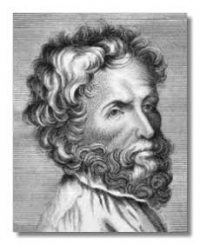
Cristóbal de Morales was a Spanish composer of the Renaissance. He is generally considered to be the most influential Spanish composer before Tomás Luis de Victoria.
Daniel Froehling

Daniel Froehling and I am currently a Freshman at The University of Minnesota. In High School I was the director of Men of The Centuryy, a Men's Acappella Group at the Century High School. Now I am the President of Serenade the City, a group here at the U. I'm a Bass Two (the best section by far). I've always enjoyed singing, and writing sheet music is only taking the experience to another level. I hope you enjoy what you hear, and feel free to use the music however you want.
Anatoly Lyadov
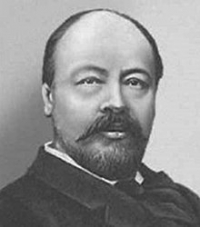
Anatoly Konstantinovich Lyadov or Liadov (Russian: Анато́лий Константи́нович Ля́дов; 12 May 1855 – 28 August 1914) was a Russian composer, teacher and conductorLyadov was born in 1855 in St. Petersburg, into a family of eminent Russian musicians. He was taught informally by his conductor step-father Konstantin Lyadov from 1860 to 1868, and then in 1870 entered the St. Petersburg Conservatory to study piano and violin.
Nobuo Uematsu

Nobuo Uematsu (植松伸夫 Uematsu Nobuo?, born March 21, 1959) is a Japanese video game composer and musician, best known for scoring the majority of titles in the Final Fantasy series. He is regarded as one of the most famous and respected composers in the video game community. Uematsu is a self-taught musician; he began to play the piano at the age of eleven or twelve, with Elton John as his biggest influence.
Uematsu joined Square (later Square Enix) in 1985, where he met Final Fantasy creator Hironobu Sakaguchi. They have worked together on numerous titles, most notably the games in the Final Fantasy series. After nearly 20 years in the company, he left Square Enix in 2004 and founded his own company called Smile Please, as well as the music production company Dog Ear Records. He has since composed music as a freelancer for video games primarily developed by Square Enix and Sakaguchi's development studio Mistwalker.
A handful of soundtracks and arranged albums of Uematsu's game scores have been released. Pieces from his video game works have been performed in concerts worldwide, and numerous Final Fantasy concerts have also been held. He has worked with Grammy Award-winning conductor Arnie Roth on several of these concerts. In 2002, he formed a rock band with colleagues Kenichiro Fukui and Tsuyoshi Sekito called The Black Mages, in which Uematsu plays the keyboard. The band plays arranged rock versions of Uematsu's Final Fantasy compositions.
Uematsu joined Square (later Square Enix) in 1985, where he met Final Fantasy creator Hironobu Sakaguchi. They have worked together on numerous titles, most notably the games in the Final Fantasy series. After nearly 20 years in the company, he left Square Enix in 2004 and founded his own company called Smile Please, as well as the music production company Dog Ear Records. He has since composed music as a freelancer for video games primarily developed by Square Enix and Sakaguchi's development studio Mistwalker.
A handful of soundtracks and arranged albums of Uematsu's game scores have been released. Pieces from his video game works have been performed in concerts worldwide, and numerous Final Fantasy concerts have also been held. He has worked with Grammy Award-winning conductor Arnie Roth on several of these concerts. In 2002, he formed a rock band with colleagues Kenichiro Fukui and Tsuyoshi Sekito called The Black Mages, in which Uematsu plays the keyboard. The band plays arranged rock versions of Uematsu's Final Fantasy compositions.
Mika

Mica Penniman (born 18 August 1983), known as Mika, is a Lebanese-born, London-based, Grammy-nominated and BRIT Award-winning singer-songwriter, who has a recording contract with Casablanca Records and Universal Music. He rose to fame around the end of 2006 and the start of 2007. His birth name is Michael Holbrook Penniman.
Chopin

Frédéric Chopin (1 March 1810 – 17 October 1849) was a Polish composer and virtuoso pianist of the Romantic period. He is widely regarded as the greatest Polish composer, and ranks as one of music's greatest tone poets.
He was born in the village of Żelazowa Wola, in the Duchy of Warsaw, to a Polish mother and French-expatriate father, and in his early life was regarded as a child-prodigy pianist. In November 1830, at the age of 20, Chopin went abroad; following the suppression of the Polish November Uprising of 1830–31, he became one of many expatriates of the Polish "Great Emigration."
In Paris, he made a comfortable living as a composer and piano teacher, while giving few public performances. A Polish patriot,
Chopin's extant compositions were written primarily for the piano as a solo instrument. Though technically demanding, Chopin's style emphasizes nuance and expressive depth rather than virtuosity. Chopin invented musical forms such as the ballade and was responsible for major innovations in forms such as the piano sonata, waltz, nocturne, étude, impromptu and prelude. His works are mainstays of Romanticism in 19th-century classical music.
He was born in the village of Żelazowa Wola, in the Duchy of Warsaw, to a Polish mother and French-expatriate father, and in his early life was regarded as a child-prodigy pianist. In November 1830, at the age of 20, Chopin went abroad; following the suppression of the Polish November Uprising of 1830–31, he became one of many expatriates of the Polish "Great Emigration."
In Paris, he made a comfortable living as a composer and piano teacher, while giving few public performances. A Polish patriot,
Chopin's extant compositions were written primarily for the piano as a solo instrument. Though technically demanding, Chopin's style emphasizes nuance and expressive depth rather than virtuosity. Chopin invented musical forms such as the ballade and was responsible for major innovations in forms such as the piano sonata, waltz, nocturne, étude, impromptu and prelude. His works are mainstays of Romanticism in 19th-century classical music.
The All-American Rejects

The All-American Rejects are a rock band sometimes referred to as AAR, from Stillwater, Oklahoma formed by Tyson Ritter and Nick Wheeler in 2001. Their breakthrough album, The All-American Rejects was re-released in 2003, launching them into their mainstream capabilities with their hit, Swing, Swing. They followed up with Move Along, which catapulted their status to one of the top pop rock bands. Move Along has been certified double Platinum in the U.S. by the RIAA and their self-titled release in 2003 has been certifield Platinum. They are planning on releasing their third album When The World Comes Down on November 18, 2008.
Current members:
Tyson Ritter – Vocals, bass guitar, piano
Nick Wheeler – Lead guitar, vocals, keyboards
Mike Kennerty – Rhythm guitar, vocals
Chris Gaylor – Drums, percussion
Current members:
Tyson Ritter – Vocals, bass guitar, piano
Nick Wheeler – Lead guitar, vocals, keyboards
Mike Kennerty – Rhythm guitar, vocals
Chris Gaylor – Drums, percussion
Sailor Moon
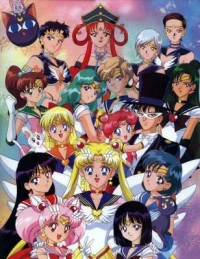
Sailor Moon is the title of a Japanese media franchise created by Naoko Takeuchi. It is generally credited with popularizing the concept of a sentai (team) of magical girls, as well as the general re-emergence of the magical girl genre itself.
The story of the various metaseries revolves around the reincarnated defenders of a kingdom that once spanned the solar system, and the evil forces that they battle. The major characters—called Sailor Senshi (literally "Sailor Soldiers"; frequently called "Sailor Scouts" in the North American version)—are teenage girls who can transform into heroines named for the moon and planets (Sailor Moon, Sailor Mercury, Sailor Mars, etc). The use of "Sailor" comes from a style of girls' school uniform popular in Japan, the sērā fuku (sailor outfit), after which the Senshi's uniforms are modeled. The elements of fantasy in the series are heavily symbolic and often based on mythology.
Music for the Sailor Moon metaseries was written and composed by numerous people, including frequent lyrical contributions by creator Naoko Takeuchi. All of the background musical scores, including the spinoffs, games, and movies, were composed and arranged by Takanori Arisawa, who earned the "Golden Disk Grand Prize" from Columbia Records for his work on the first series soundtrack in 1993. In 1998, 2000, and 2001 he won the JASRAC International Award for most international royalties, owing largely to the popularity of Sailor Moon music in other nations.
The story of the various metaseries revolves around the reincarnated defenders of a kingdom that once spanned the solar system, and the evil forces that they battle. The major characters—called Sailor Senshi (literally "Sailor Soldiers"; frequently called "Sailor Scouts" in the North American version)—are teenage girls who can transform into heroines named for the moon and planets (Sailor Moon, Sailor Mercury, Sailor Mars, etc). The use of "Sailor" comes from a style of girls' school uniform popular in Japan, the sērā fuku (sailor outfit), after which the Senshi's uniforms are modeled. The elements of fantasy in the series are heavily symbolic and often based on mythology.
Music for the Sailor Moon metaseries was written and composed by numerous people, including frequent lyrical contributions by creator Naoko Takeuchi. All of the background musical scores, including the spinoffs, games, and movies, were composed and arranged by Takanori Arisawa, who earned the "Golden Disk Grand Prize" from Columbia Records for his work on the first series soundtrack in 1993. In 1998, 2000, and 2001 he won the JASRAC International Award for most international royalties, owing largely to the popularity of Sailor Moon music in other nations.
Tomaso Antonio Vitali
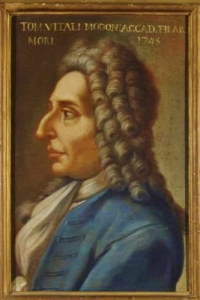
Tomaso Antonio Vitali (March 7, 1663 – May 9, 1745) was an Italian composer and violinist from Bologna, the eldest son of Giovanni Battista Vitali. He is known mainly for a chaconne in G minor for violin and continuo, which was published from a manuscript in the Sächsische Landesbibliothek in Dresden in Die Hoch Schule des Violinspiels (1867) edited by German violinist Ferdinand David. That work's wide-ranging modulations into distant keys have raised speculation that it could not be a genuine baroque work.
Alexander Mackenzie
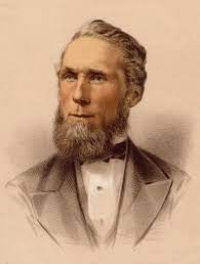
Sir Alexander Campbell Mackenzie KCVO (22 August 1847 – 28 April 1935) was a Scottish composer, conductor and teacher best known for his oratorios, violin and piano pieces, Scottish folk music and works for the stage.
Mackenzie was a member of a musical family and was sent for his musical education to Germany. He had many successes as a composer, producing over 90 compositions, but from 1888 to 1924, he devoted a great part of his energies to running the Royal Academy of Music. Together with Hubert Parry and Charles Villiers Stanford, he was regarded as one of the fathers of the British musical renaissance in the late nineteenth century.
Mackenzie was a member of a musical family and was sent for his musical education to Germany. He had many successes as a composer, producing over 90 compositions, but from 1888 to 1924, he devoted a great part of his energies to running the Royal Academy of Music. Together with Hubert Parry and Charles Villiers Stanford, he was regarded as one of the fathers of the British musical renaissance in the late nineteenth century.
Charles-Valentin Alkan
Charles-Valentin Alkan (French: ; 30 November 1813 – 29 March 1888) was a French-Jewish composer and virtuoso pianist. At the height of his fame in the 1830s and 1840s he was, alongside his friends and colleagues Frédéric Chopin and Franz Liszt, among the leading pianists in Paris, a city in which he spent virtually his entire life.Alkan earned many awards at the Conservatoire de Paris, which he entered before he was six. His career in the salons and concert halls of Paris was marked by his occasional long withdrawals from public performance, for personal reasons. Although he had a wide circle of friends and acquaintances in the Parisian artistic world, including Eugène Delacroix and George Sand, from 1848 he began to adopt a reclusive life style, while continuing with his compositions – virtually all of which are for the keyboard.
JOAQUIM SERRA PICA
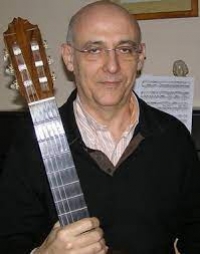
JOAQUIM SERRA PICA Musician Guitar playerMediterranean flauvored music, created specifically for the instrument.
Andrea Bocelli
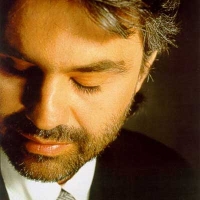
Andrea Bocelli (born 22 September 1958) is an Italian operatic pop tenor and a classical crossover singer who has also performed in operas. To date, he has recorded six complete operas (La bohème, Il trovatore, Werther, Pagliacci, Cavalleria rusticana and Tosca) in addition to various classical and pop albums. He has sold 60 million albums worldwide thus far. Born with congenital glaucoma, total blindness came to Bocelli at the age of twelve, after a football accident.
Shaun Dewfall
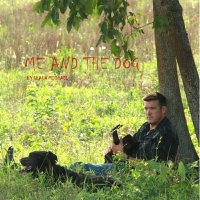
Shaun Michael Dewfall. The Final The Final Shaun Dewfall Violin contrabass cello Video Game Video Game Thriller Action fast Fast Tempo Sibelius.
Ewan MacColl
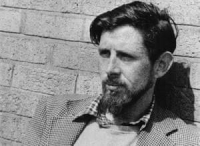
James Henry Miller, better known by his stage name Ewan MacColl, was a British folk singer, songwriter, communist, labour activist, actor, poet, playwright and record producer.
 Sheet Music Max is a site for those who wants to access popular sheet music easily,
letting them download the sheet music for free for trial purposes.
It's completely free to download and try the listed sheet music, but you have to delete the files after 24 hours of trial.
Don't forget, if you like the piece of music you have just learned playing,
treat the artist with respect, and go buy the original sheet music.
Sheet Music Max is a site for those who wants to access popular sheet music easily,
letting them download the sheet music for free for trial purposes.
It's completely free to download and try the listed sheet music, but you have to delete the files after 24 hours of trial.
Don't forget, if you like the piece of music you have just learned playing,
treat the artist with respect, and go buy the original sheet music.
